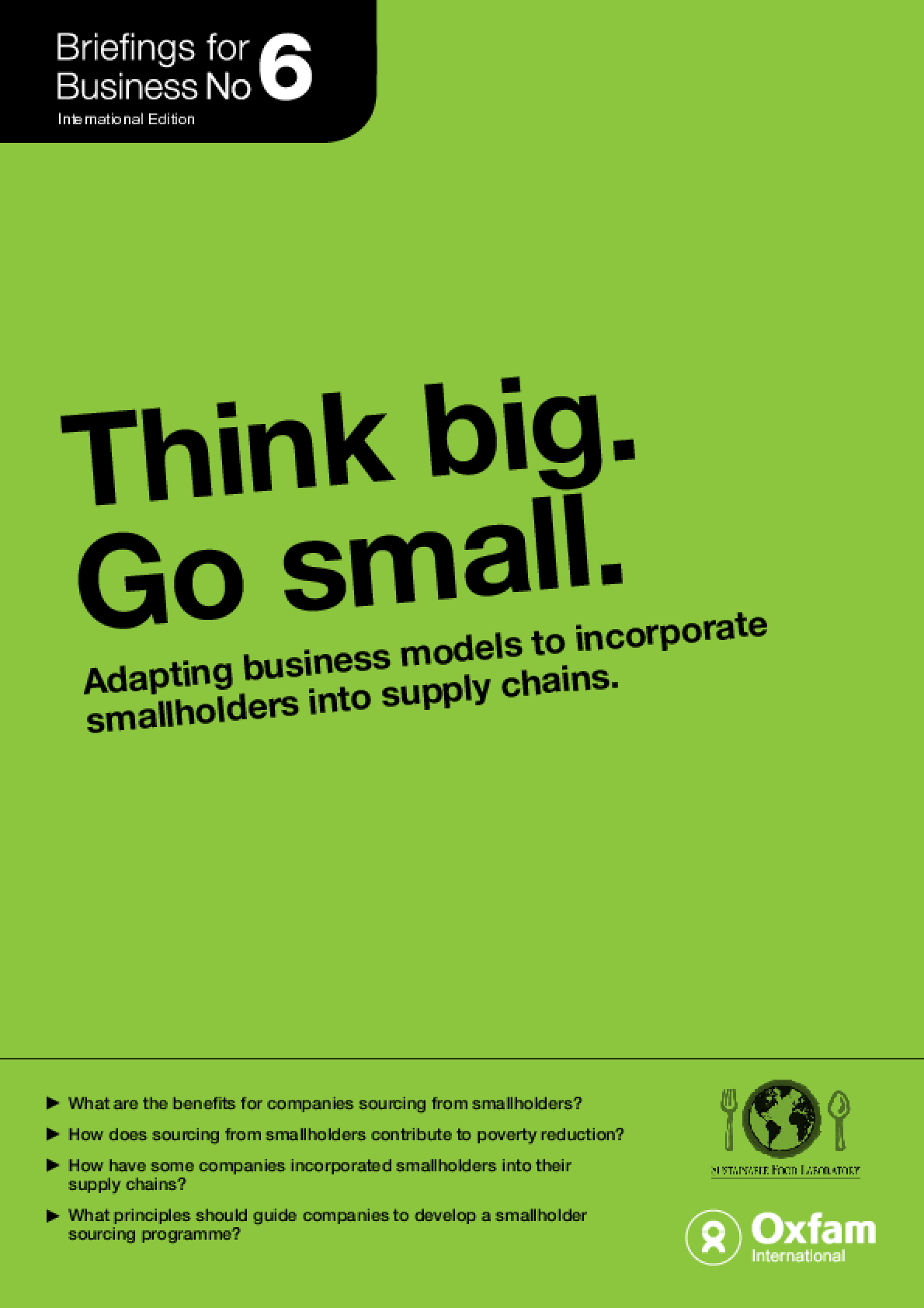Indicators of agricultural intensity and intensification: a review of the literature
Since the 1960s, research has dealt with agricultural intensification (AI) as a solution to ensure global food security. Recently, sustainable intensification (SI) has increasingly been used to describe those agricultural and farming systems that ensure adequate ecosystem service provision. Studies differ in terms of the application scales and methodologies, thus we aim to summarize the main findings from the literature on how AI and SI are assessed, from the farm to global levels.
Think Big Go Small: Adapting business models to incorporate smallholders into supply chains
This paper tries to show the advantages - both in productivity and consumer appeal - of domestic and global companies connecting with smallholder suppliers. It draws on programme experience and case studiesin the food and drinks sector where companies aimed to deliver value for their business in ways that would also benefit smallholder suppliers.
Agro-climatic and hydrological characterization of selected watersheds in northern Ghana
Literature Review: SWOT Analysis of Bangladesh's Key Water Policy Documents
Water is one of the most critical problems in Bangladesh. The Government of Bangladesh (GoB) acknowledges water as a finite resource with tremendous importance for the environment and livelihoods in its National Water Policy (GoB, 1999). The National Water Policy provides a comprehensive policy framework for pressing water issues in Bangladesh such as river basin planning, water rights and allocation, delineation of public and private domains, water supply and sanitation, preservation of the natural environment and the developmental concerns of fisheries, navigation and agriculture.
Land requirement to feed a productive dairy cow and a healthy family
Estimating water balance of Tegona watershed in southeastern Ethiopia, using SWAT model
Water resource development is certainly the basic and crucial infrastructure for a nation’s sustainable development. To utilize water resources in a sustainable manner, it is necessary to understand the quantity and quality in space and time. This study was initiated with the objective of evaluating the performance and applicability of the Soil and Water Assessment Tool (SWAT) in analyzing the influence of hydrologic parameters on the stream flow variability and estimation of monthly water yield at the outlet of Tegona river watershed in Bale mountainous area..



